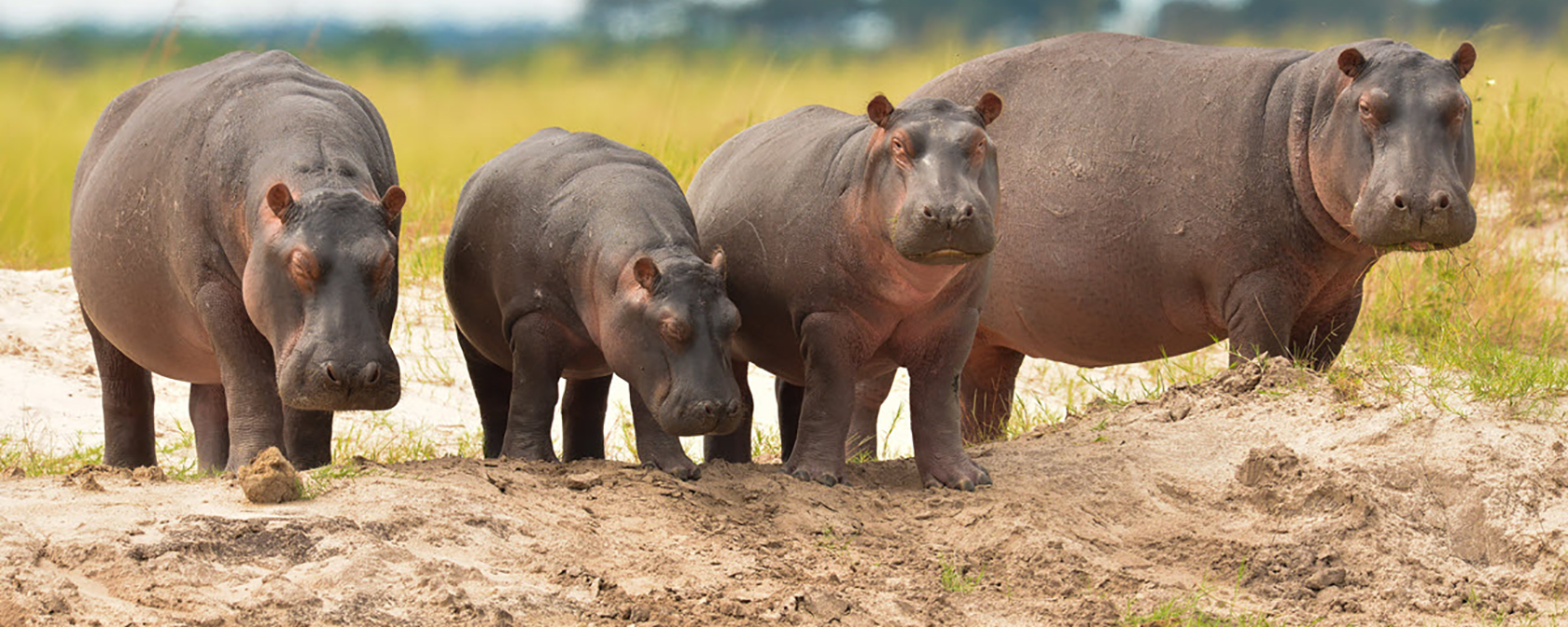By Sara Amundson and Kitty Block
Update 3/20/23: After we and our partners sent notice of our intent to sue the U.S. Fish and Wildlife Service, the agency announced that the common hippopotamus may qualify for protection under the U.S. Endangered Species Act.
Today, on World Hippo Day, we and our partners sent notice of our intent to sue the U.S. Fish and Wildlife Service for its failure to respond to our petition seeking federal protections for the common hippopotamus under the Endangered Species Act.
One of Africa’s most recognizable species, hippos are vital to ecosystems because they help to minimize flooding, distribute nutrients and promote biodiversity. But these magnificent animals are disappearing from the wild and need greater protections against trade and exploitation. Many environmental and human-caused threats, such as habitat loss, climate change, drought and poaching, have contributed to the significant decline in hippo populations across parts of sub-Saharan Africa. It is estimated that as few as 115,000 hippos remain in the wild. As one of the most difficult species to study, accurate and recent population counts are severely lacking. This means that their global population estimate may actually be much lower.
Making matters worse, hippos are also coveted by trophy hunters and traders for their body parts, specifically their ivory tusks. Many trophy hunters view it as impractical to display hippos, so they kill these unique and ecologically vital animals just to display their ivory teeth. Hippos deserve better than to be reduced to a trophy or carving for display in someone’s home.
The U.S. plays an outsized role in the trophy hunting of these magnificent animals and the trade in their parts and products. During the last decade, the U.S. imported more hippo parts and products than any other country in the world. To satisfy demand, between 2009 and 2018, U.S. traders and trophy hunters imported thousands of teeth, trophies, skins and other parts that represented at least 3,081 hippos killed.
In many states, hippo parts and products are readily available for purchase, as we highlighted in our 2022 undercover investigation. Between 2018 and 2021, we found hundreds of products and parts made from hippos being sold in stores throughout the U.S. and online. The most common items for sale were made from hippo ivory, such as carvings and knife handles, and from hippo leather, such as purses, boots and belts.
Recognizing the many threats hippos face, we filed our petition in March 2022, asking the U.S. Fish and Wildlife Service to provide critical Endangered Species Act protections to the species. As the top importer of hippo parts and products, the U.S. has a responsibility to take a stand against the cruel and ecologically reckless trade in hippo parts and is uniquely positioned to enact real protections by listing hippos as endangered under the Endangered Species Act. Doing so would place near-total restrictions on most imports and domestic sales, providing the species with much-needed relief from the relentless U.S. trade in their parts and products.
Under federal law, the U.S. Fish and Wildlife Service is required to provide an initial response to our petition within 90 days. But nearly a year has gone by, and we still have not heard from the agency. With our notice today, we are warning the Service that unless it acts swiftly to protect this iconic species, we will see the agency in court.
Kitty Block is CEO of the Humane Society of the United States.




